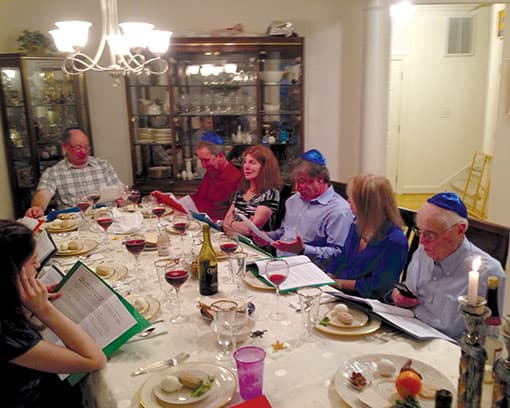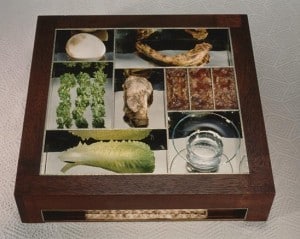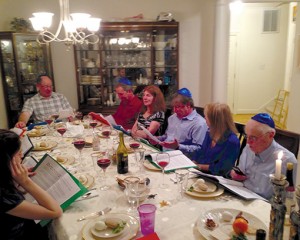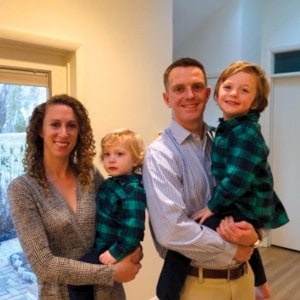Passover gets props as one of the most universally celebrated holidays on the Hebrew calendar. Even disengaged and unaffiliated Jews find their way to the Seder table once a year. What is it about Passover that attracts Jews of all stripes, and arouses wonder in non-Jews?
Part of the Passover package is inclusivity and universality. The ordered meal, or Seder, offers a rare opportunity to celebrate Jewish identity and project the universal longing for freedom on to a traditional religious framework. The uptick in appeal comes from the aesthetically pleasing, ever-expanding soulful spread of ethnic dishes from around the world.
Take the story of a no-show, benevolent prophet named Elijah. Opening the door and awaiting his arrival invites a unique sense of welcoming. That same warmth often extends to friends and family of all faiths and belief systems whose engagement enhances the seder experience for everyone.
Chicago based architect, and exhibition and graphic designer, Amy Klein Reichert won the prestigious Philip and Sylvia Spertus Judaica Seder Plate prize for her first piece of Judaica, a mahogany and nickel seder plate. Much of Reichert’s work reflects her perception of the holiday —particularly what people bring to, and take away from the Passover story.
Affection for Passover flows from its status as a home-based ritual, rather than a holiday grounded in a particular synagogue’s rules and regulations. “I think the idea that you spin the narrative your way and take control of your own experience is a powerful thing,” says Reichert. “Over the years, our non-Jewish friends come to our Seders expecting them to be serious and leave surprised by how lively they can be.”
Former Temple Emanuel president and Norfolk native Gary Tabakin, is married to Virginia Beach native Kevin, a long-time Temple Emanuel member. Tabakin crafted his own Seder Hagaddah after learning that an ancient story about plagues and persecution can be an opportunity to engage kids and grandchildren, and doesn’t have to be stiff or stuffy.
“Passover is by far my favorite Jewish holiday,” says Tabakin. “When my children were young, I made sure to engage them. I led our family seders with lots of props, puppet shows, and funny songs about Pharoah and the plagues. I remember the seders at my grandmother’s house in New Jersey more for the mouth-watering brisket than the serious Maxwell House hagaddahs that didn’t speak to me.”
The progressive, DIY Seder style is increasingly popular with families like the Tabakins. “Every year we use a haggadah compiled by a good friend. They give me new insights into the meaning of Passover, with readings from organizations such as HIAS, the American Jewish World Service, and the Jewish Women’s Archive, focused on a variety of topics like human rights and freedom.”
Reichert designs seder plates around the concept that Passover always prompts new questions and discoveries. “It’s dynamic, not dogmatic.”
For at least one night every year it appears that Jews like Meryl Mulligan find a way to reconnect to their origin story and each other. Meryl and husband Sean have two boys who attend Strelitz International Academy.
“It’s special to think that Jews all over the world are celebrating and engaging in the same traditions. In the world today, where Jews are still fighting anti-Semitism, to feel part of a worldwide community is so important. Also, our Seder is full of joy, and my kids love how they get to actively participate. My older son, who is five, has sung the Four Questions the past two years and he proudly stands on his chair because it makes him feel so special,” says Mulligan.
One more thing that gives Passover its crowd-pleasing edge over other Jewish holidays is that it falls during the season of hope and renewal. This year, anticipation of the arrival of the spring festival will be reason enough to celebrate, and not drink from the cup of Elijah.
– Lisa Richmon




